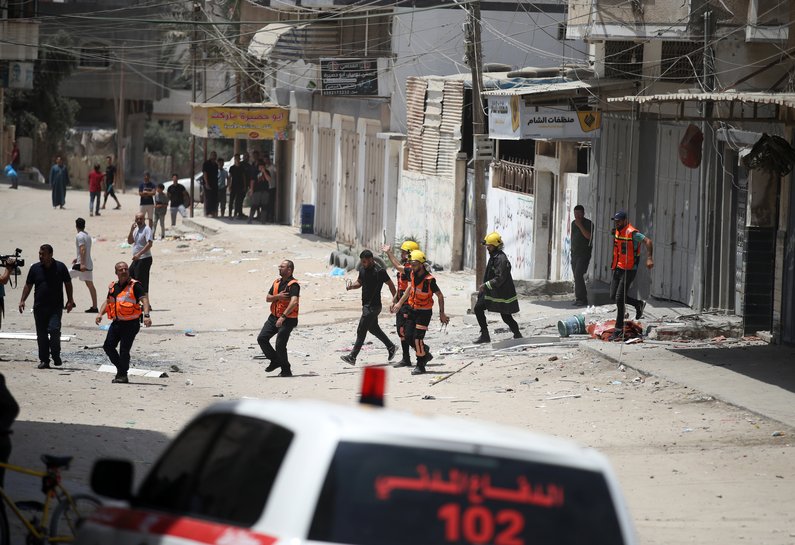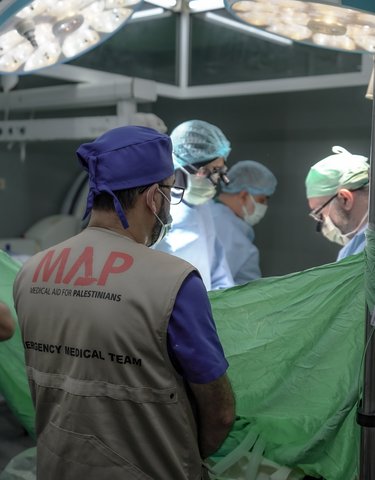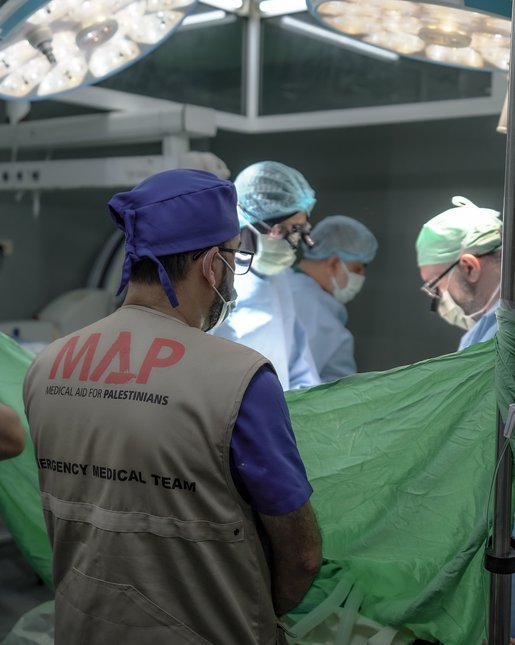Gaza’s health system on the brink of collapse yet again

Health services are suffering from severe shortages of drugs, medical consumables and equipment. 40% of drugs and 20% of medical consumables are currently at zero stock, meaning they have only one month’s supply left. The Ministry of Health (MoH) also decided to halt elective surgeries and outpatient clinic services last weekend, to prioritise responding to the emergency.
Before the airstrikes rained down on Gaza, Israel closed both the Erez and Karem Shalom crossings. This prevented the entry of essential medicines and fuel for Gaza’s only power plant, leaving hospitals relying on back up generators to continue providing their services. Israel’s closure of the crossings has also meant that critically ill patients have been unable to receive the permits they need to seek treatment, and potentially life-saving care, outside Gaza. The crossings have been reopened since Monday 8 August.
“During the recent attacks, hospitals were facing serious challenges in providing the needed care to the injured given the significant deficit of drugs, medical and non-medical equipment. This was a major issue, especially in critical departments such as intensive care units, kidney dialysis, operation theatres and emergency departments,” said Thaer Jarghon, who works for the International Cooperation Development Unit at the MoH.
The healthcare system is still recovering from Israel’s 11-day military assault in May 2021 and four deadly waves of the COVID-19 pandemic. This comes in the context of 15 years of illegal closure and blockade, that has created a humanitarian crisis which continues to deteriorate year-on-year. Israel’s repeated military assaults have exacted a staggering toll on Palestinian health, where more than 4,000 Palestinians have been killed and nearly 20,000 injured.
These attacks have accelerated the degradation of Gaza’s beleaguered healthcare system and its ability to provide adequate care to the population. At the same time, Israel has created a situation of permanent insecurity for Palestinians in Gaza, over whose lives and basic needs it maintains control, while justifying its collective punishment as necessary for the security of its own citizens. This discriminatory control has profound impacts on Palestinian health and healthcare, and Palestinians in Gaza are in a constant state of crisis and always fearing the next offensive.
For as long as Gaza’s health services are prevented from developing, or even able to access basic medical supplies and equipment, people will have no way of recovering – both physically and mentally – from the four major offensives that have happened in the last 14 years.
In February 2022, Dr Bashar Murad, Emergency Medical Services Director at the Palestine Red Crescent Society in Gaza, warned that “the health sector is always on the edge of collapsing.” This latest round of violence by Israel has only pushed the health system closer to the brink.
The only route to ensuring the full recovery and sustainable development of the healthcare system is by addressing the underlying root causes that lead to its degradation and de-development. This includes taking action to pressure Israel to ends its illegal closure and blockade of Gaza, and reverse its discriminatory policies that fragment Palestinian healthcare.
As Fikr Shalltoot, MAP’s Gaza Director, highlighted: “The blockade must be lifted, people need to breathe and have access to a life of health and dignity. Palestinians have the right to move freely to access treatment when they need it, to find work and make a living, and to plan for their future. Gaza’s children have the right to grow and develop in a normal environment, to live without fear, and to have their own dreams.”
MAP is responding to the emergency in Gaza by releasing prepositioned medicines, lab reagents and disposables, and procuring lifesaving items that are currently at zero stock. Please support these efforts by making an urgent donation today.
Photo: Emergency response teams during Israel's attacks on Gaza from 7-9 August 2022. (Credit: Mohammed Zaanoun).
Related content




